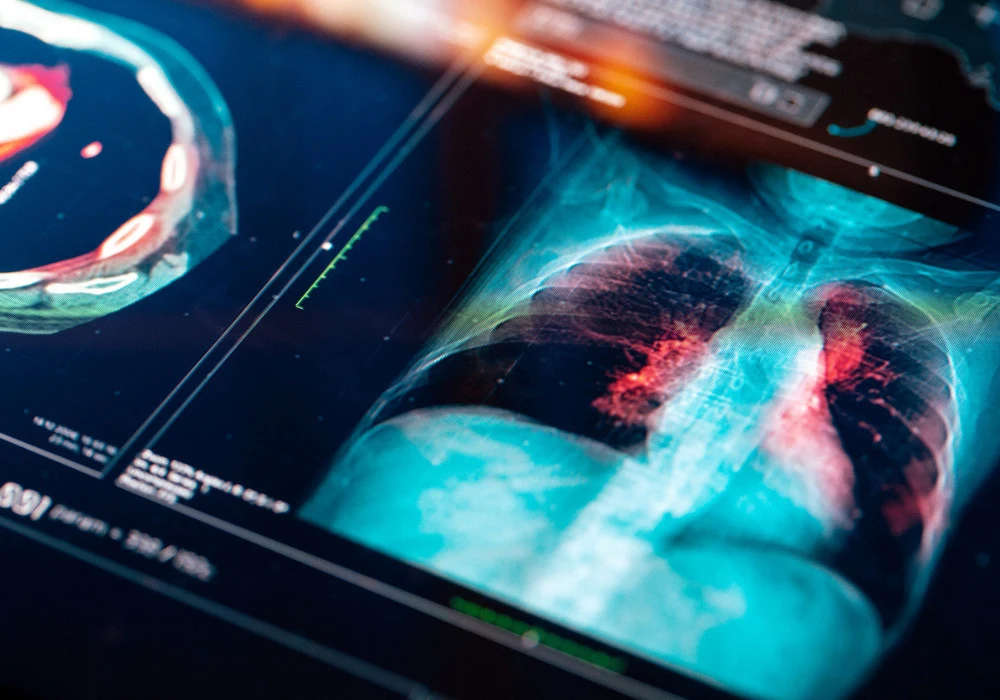Lung cancer remains the deadliest form of cancer in the European Union, in part due to the lack of systematic screening programmes. France is now set to shift this trajectory through IMPULSION, an innovative pilot initiative aimed at improving early detection among high-risk groups. The programme is grounded in scientific evidence and shaped by recent learnings, notably from the CASCADE study. With a structured design, national scope and equity at its core, IMPULSION could help establish a new standard for lung cancer screening across Europe.
Structured Screening with Risk-Based Selection
IMPULSION is designed to detect lung cancer early while avoiding unnecessary interventions. The pilot will invite 20,000 individuals between the ages of 50 and 74 with a history of heavy smoking—defined as a pack a day for 20 years or more—to participate. Candidates must either be current smokers or have quit within the last two decades. Each participant will undergo three low-dose CT scans over four years: at baseline, after one year and a final scan at year four if no abnormalities are detected previously.
The pilot builds on insights from the earlier CASCADE study, which showed that not all nodules indicate malignancy and that aggressive follow-up is not always warranted. The protocol for IMPULSION is therefore calibrated to balance timely diagnosis with the risks of overdiagnosis and overtreatment. By focusing on significant risk profiles and integrating a staggered timeline, the programme seeks to reduce anxiety and minimise harm while retaining diagnostic effectiveness.
Radiologist Training and the Role of AI
One of the key innovations in IMPULSION lies in how it supports radiologist readiness. Given that thoracic radiologists are in limited supply, the programme introduces a national training pathway for general radiologists. This training is adapted from a prior certification framework recognised by the European Society of Radiology and ensures consistency and confidence in interpreting lung cancer screening scans.
Must Read: Transforming Lung Cancer Screening for Asymptomatic Populations
Artificial intelligence will also play a central role. For the first 2,500 cases, CT scans will be double-read by both a human radiologist and an AI tool. If the AI and the initial reader agree, no second human review will be necessary. This approach addresses the shortage of highly trained specialists while maintaining quality. By leveraging AI as a secondary reader, the programme hopes to create a scalable model for screening that can operate efficiently across regions.
Public Health Outreach and Expanded Preventive Benefits
IMPULSION is equally ambitious in its outreach strategy. To recruit participants, the programme will work through occupational health networks at companies like Stellantis, Danone and SNCF. This enables access to at-risk populations who are often overlooked in traditional medical settings. By partnering with workplace physicians, the programme ensures screening is brought closer to those unlikely to visit pulmonologists on their own.
Beyond lung cancer, the pilot incorporates other important preventive elements. Low-dose CT scans can reveal coronary artery calcifications, offering early warning signs for cardiovascular disease. Participants will also be offered smoking cessation support. This holistic design increases the impact of each scan by addressing multiple health risks simultaneously. Through this comprehensive model, IMPULSION demonstrates how targeted interventions can extend their reach beyond a single disease.
Funded with €10 million from the French National Cancer Institute and supported by social security and regional health authorities, IMPULSION represents a concerted national effort to make lung cancer screening more equitable and effective. Starting with five regions in 2025 and aiming for national coverage by 2026, the programme not only addresses immediate clinical needs but also tests new technologies such as ultra-low dose scanning. By integrating training, AI and outreach within a unified framework, IMPULSION provides a powerful blueprint for lung cancer screening in Europe. Its success could set the stage for a more inclusive, preventive approach to cancer care—saving lives through smarter detection.
Source: Healthcare in Europe
Image Credit: iStock










